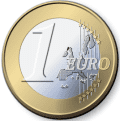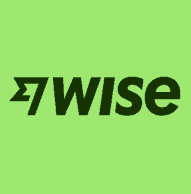There are many different ways to pay for your visit to France and pay for travel, hotels, food and drink and general spending money, etc.
But at least with the development of the European Union means that you only have to worry about 1 currency, the €uro in Austria, Belgium, Cyprus, Estonia, Finland, France, Germany, Greece, Ireland, Italy, Latvia, Lithuania, Luxembourg, Malta, the Netherlands, Portugal, Slovakia, Slovenia, and Spain.
The wide acceptance of credit cards also make s spending easier, albeit the costs involved can vary greatly. Then the need for cash is another consideration.
We now find no need for Travellers Cheques nor significant amounts of cash before we travel,
Recently we have found using Wise (formerly TransferWise) the best option for our needs, both to send money abroad and for spending money with their pre-paid Mastercard – the following is an extract from their website:
France is the most visited country in the world when looking at international arrivals. A staggering 84.5 million international visitors chose France for their travels in 2015
Whether you’re heading there for a short break or relocating for good, you’ll need to know how to get – and spend – your cash. This guide walks through the banking and currency systems so you know what to expect on your visit.
Currency in France

France is one of the eleven founding members of the Eurozone, with Euros coming into circulation as the only legal tender in 2002.
Other currencies are not widely accepted in France, so you will need to have Euros on you for your visit.
| 1 EUR | One Euro is made up of 100 cents. |
| EUR coins | Coins are available in denominations of 1, 2, 5, 10, 20, and 50 cents, as well as €1 and €2. |
| EUR banknotes | Notes which are commonly used are 5, 10, 20 and 50 Euro denominations. Although €100, €200 and €500 notes are also available, they won’t be accepted by many businesses. |
Euro coins and notes are accepted anywhere in the Eurozone, regardless of the country they were issued in.
Wherever you change your cash, you should be wary about the fees and charges that are added. These are not always immediately obvious, so look carefully.
The best way to ensure a fair conversion deal is to understand the mid-market rate. This is the real exchange rate which you’ll find on google and Xe.com, and should be used to compare the tourist rates on offer.
All major credit and debit cards are accepted in France. Hotels, stores, bars and restaurants in cities and major tourist areas will take cards happily. Occasionally you might find an outlet that will not accept Amex, so if this is your main card then it is worth asking before you commit to a purchase.
Smaller cafes, markets and bed & breakfasts are likely to operate cash only. Carry some Euro currency on you just in case.
If you use a foreign registered credit or debit card in France you might come across Dynamic Currency Conversion (DCC). This means that you’ll be asked if you want to be charged for your purchases in your home currency. Be wary of this option! The exchange rate used for the transaction will not be favourable, and additional charges can be disguised in this figure too. Always opt to pay in the local currency instead, which will mean your home bank perform the exchange at a fairer rate.
It’s worth letting your bank or card provider know you’ll be travelling. Otherwise a sudden spike in overseas transactions might result in your card being blocked until your bank is able to contact you.
When you withdraw from an ATM abroad, you’ll probably find that you are charged twice – once by your own bank and once by the ATM provider. However, because the exchange rate used is generally fairer than that offered at an exchange booth, this is usually still the better option for many travellers.
For simple access to your money abroad – and an even better deal – use Wise formerly TransferWise.
If you have a Euro bank account in France, or know someone who does, you’ll not need to waste time looking for an exchange service. With WISE/Transferwise you can transfer money between accounts using the real mid-market exchange rate. It’s a quick and convenient way to get your cash, with no hidden fees.
